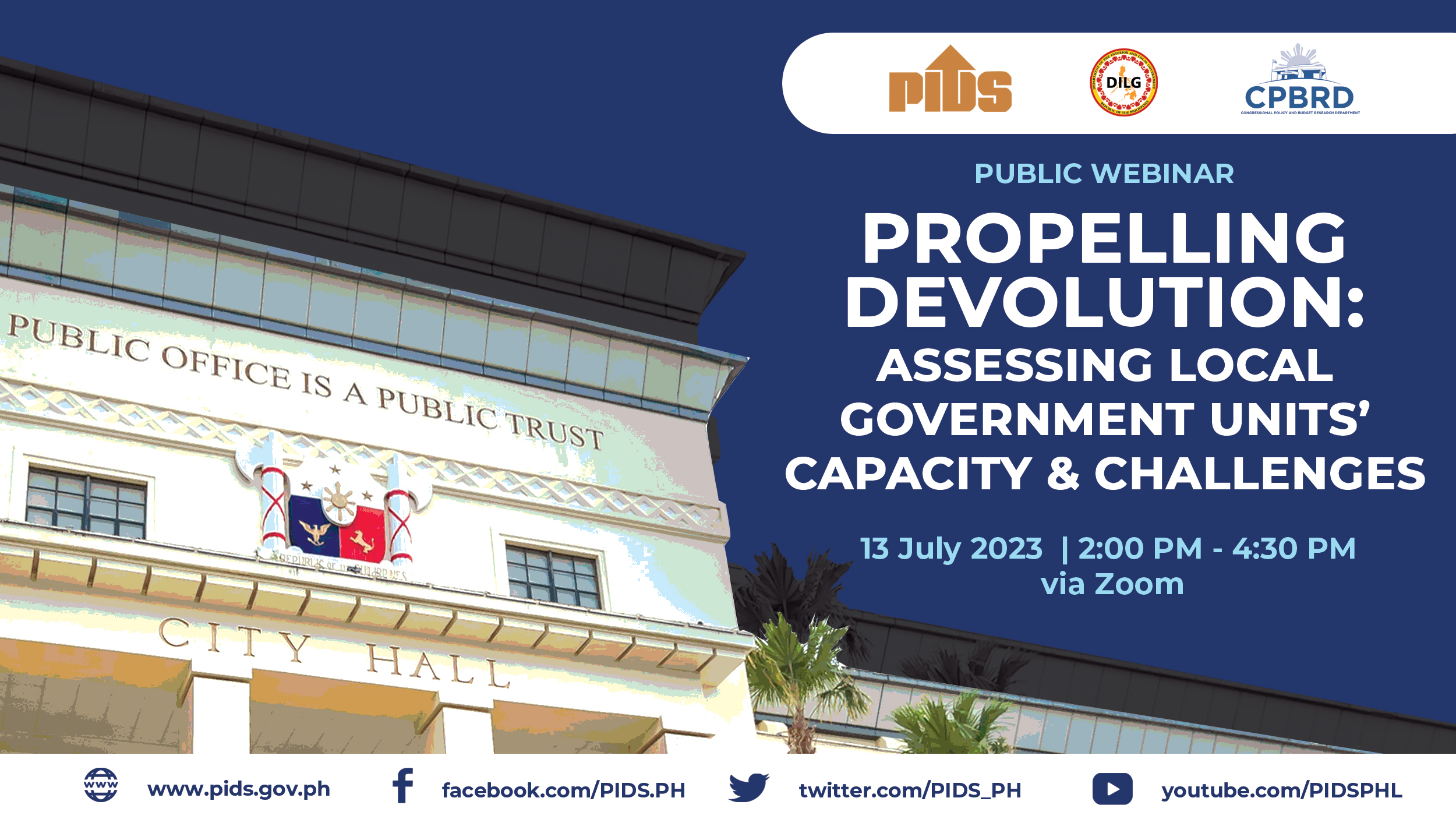Proposals to amend the personal income-tax schedule appear to be well-justified. However, these proposals should include measures that will allow government to recover the revenue loss from lower income taxes.
Dr. Rosario Manasan, senior research fellow of state think-tank Philippine Institute for Development Studies (PIDS), said at a Senate-sponsored seminar, the government should look for new revenue measures to compensate for the projected revenue loss that will arise as a result of the implementation of any of the various proposals to restructure the personal income tax.
Currently, there are several income-tax reform proposals pending in both houses of Congress. All of them, according to Manasan, have the same objective of addressing the phenomenon of bracket creep, which results from “non-indexation to inflation of personal income-tax brackets.” Simply put, bracket creep occurs when employees’ income increases over time as a result of inflation. This pushes them to pay higher taxes, but their purchasing power
remains the same. The Philippines has not adjusted its personal income-tax system since 1998.
Manasan also noted the proposals all attempt to reduce the country’s high personal income-tax rate relative to its neighbors in the Association of South East Asian Nations (Asean). In particular, the Philippines’s top marginal personal income-tax rate of 32 percent is higher than the Asean member-states save for Thailand and Vietnam.
The proposals to amend the personal income-tax law assessed in the PIDS study were Sen. Ralph G. Recto’s Senate Bill (SB) 716, Sen. Bam Aquino’s SB 1942, Sen. Sonny Angara’s SB 2149, Rep. Miro Quimbo’s of the Second District of Marikina Cityn House Bill (HB) 4829, and Party-list Reps. Neri Colmenares’s and Carlos Zarate’s of Bayan Muna HB 5401. Similar proposals have been raised by the private sector, most notably the Tax Management Association of the Philippines (TMAP).
According to Manasan, Recto’s SB 716 and Quimbo’s HB 4829 will reform the personal income-tax system by adjusting the tax brackets, according to changes in consumer-price index between 1998 and 2015. Meanwhile, Aquino’s SB 1942 will exempt incomes below P60,000 and raise the top-bracket income threshold to P12 million. Angara’s SB 2149 will affect changes in tax rates in phases over a span of three years, reducing the bottom marginal tax rate from 15 percent to 10 percent and the top marginal tax rate from 32 percent to 25 percent. Under this proposal, all incomes below P20,000 will also be exempted from taxation.
Colmenares and Zarate’s HB 5401 exempts income below P396,000 and raises the top threshold to P2 million.//
Dr. Rosario Manasan, senior research fellow of state think-tank Philippine Institute for Development Studies (PIDS), said at a Senate-sponsored seminar, the government should look for new revenue measures to compensate for the projected revenue loss that will arise as a result of the implementation of any of the various proposals to restructure the personal income tax.
Currently, there are several income-tax reform proposals pending in both houses of Congress. All of them, according to Manasan, have the same objective of addressing the phenomenon of bracket creep, which results from “non-indexation to inflation of personal income-tax brackets.” Simply put, bracket creep occurs when employees’ income increases over time as a result of inflation. This pushes them to pay higher taxes, but their purchasing power
remains the same. The Philippines has not adjusted its personal income-tax system since 1998.
Manasan also noted the proposals all attempt to reduce the country’s high personal income-tax rate relative to its neighbors in the Association of South East Asian Nations (Asean). In particular, the Philippines’s top marginal personal income-tax rate of 32 percent is higher than the Asean member-states save for Thailand and Vietnam.
The proposals to amend the personal income-tax law assessed in the PIDS study were Sen. Ralph G. Recto’s Senate Bill (SB) 716, Sen. Bam Aquino’s SB 1942, Sen. Sonny Angara’s SB 2149, Rep. Miro Quimbo’s of the Second District of Marikina Cityn House Bill (HB) 4829, and Party-list Reps. Neri Colmenares’s and Carlos Zarate’s of Bayan Muna HB 5401. Similar proposals have been raised by the private sector, most notably the Tax Management Association of the Philippines (TMAP).
According to Manasan, Recto’s SB 716 and Quimbo’s HB 4829 will reform the personal income-tax system by adjusting the tax brackets, according to changes in consumer-price index between 1998 and 2015. Meanwhile, Aquino’s SB 1942 will exempt incomes below P60,000 and raise the top-bracket income threshold to P12 million. Angara’s SB 2149 will affect changes in tax rates in phases over a span of three years, reducing the bottom marginal tax rate from 15 percent to 10 percent and the top marginal tax rate from 32 percent to 25 percent. Under this proposal, all incomes below P20,000 will also be exempted from taxation.
Colmenares and Zarate’s HB 5401 exempts income below P396,000 and raises the top threshold to P2 million.//












